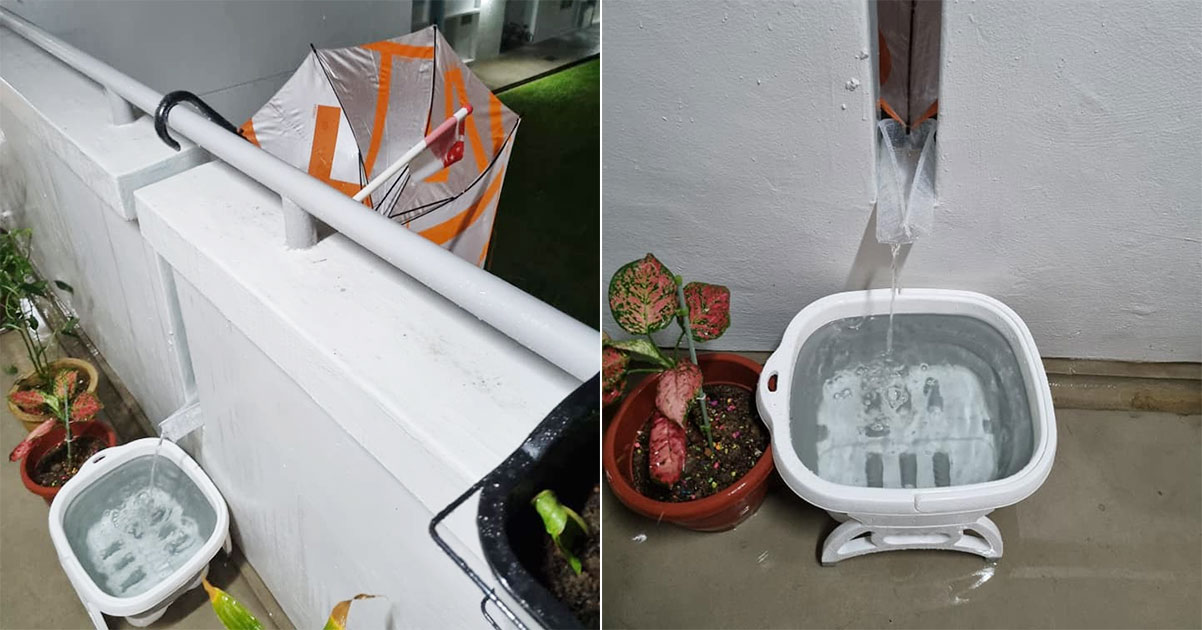Follow us on Telegram for the latest updates: https://t.me/mothershipsg
Almost everything in Singapore either belongs to the state, is subscription-based, or costs money to procure -- except rainwater.
How to collect rainwater
To show that it is not difficult to harvest rain at all, one man in Singapore put up a Facebook post on Sep. 26 showing his ingenious method of diverting a tiny fraction of the precipitation falling fresh from the sky into his pail along the HDB corridor.
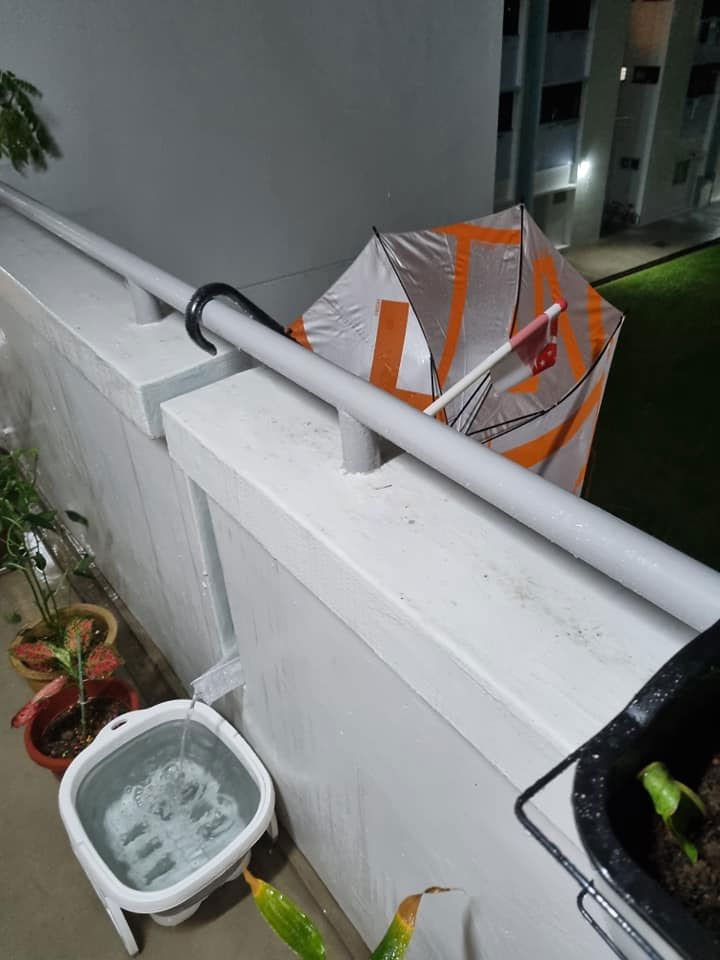
How contraption works
Based on photos put up in the home gardening Facebook group, the contraption is easily replicable along many HDB block corridors -- as long as they have that tiny vertical slit along the walls.
At long last, it appears one person finally figured out how to make the best of it -- besides letting children look down the block.
With the umbrella hooked onto the handrail, the inside of the umbrella will be filled with water collected, which will flow into a bag that serves as a funnel, which then diverts the water into the pail.
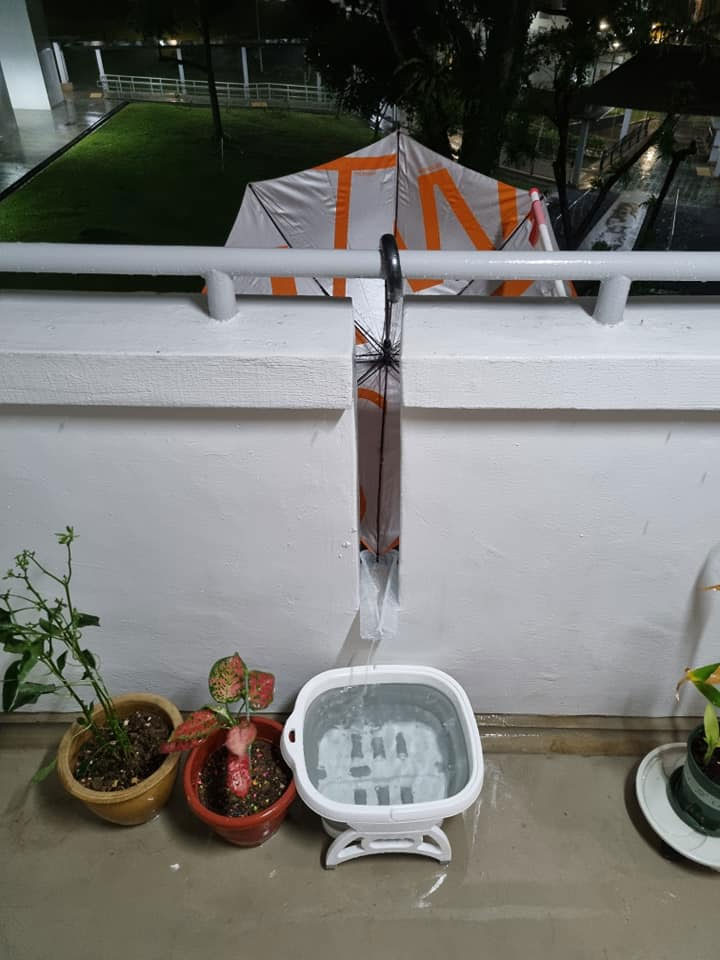
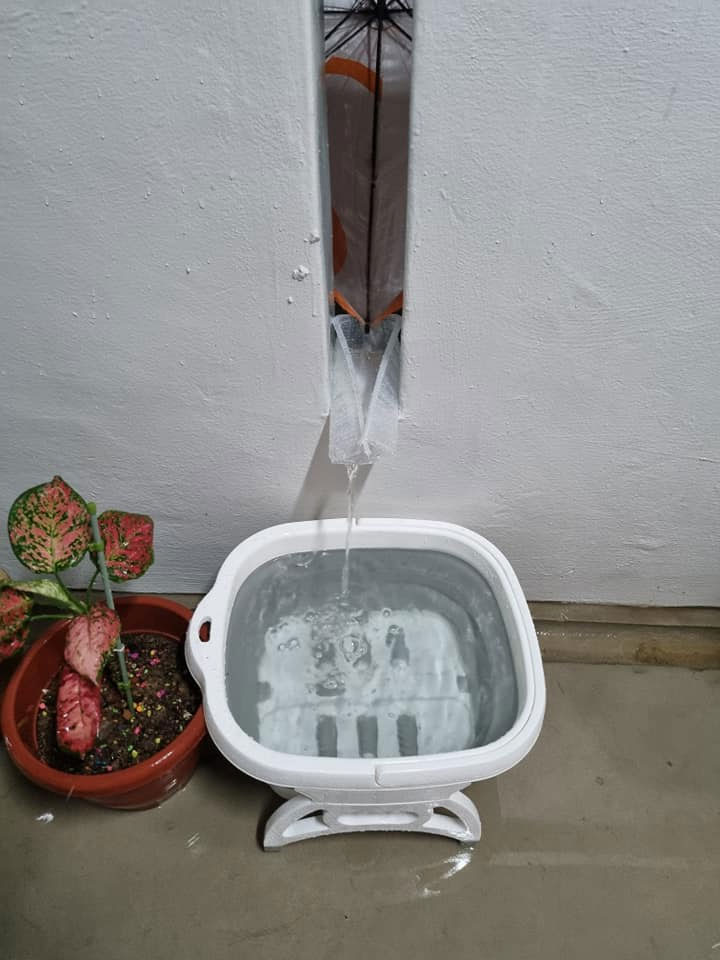
Collection stops once pail full
According to the post, the collection of rainwater stops once the pail is full.
The resident also assured readers that the umbrella's handle is sturdy enough for the water collection device to not get weighed down, dislodged, and fall off, even as it is partially but continuously filled with rainwater.
To assuage those who were concerned, the resident tied the umbrella's hooked handle to the handrail using raffia string.
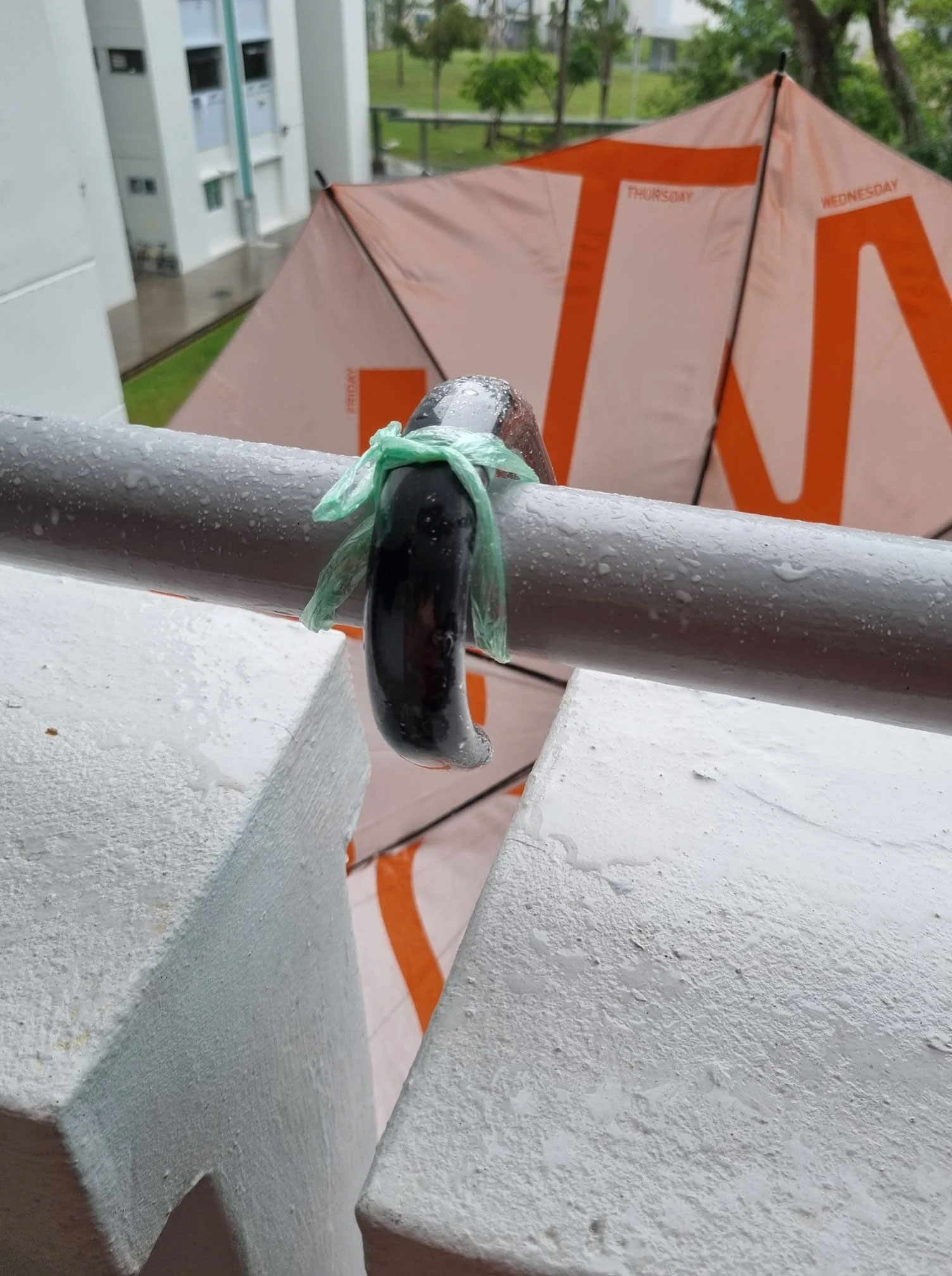
Is it legal to collect rainwater in Singapore?
The collection of rainwater for personal use in high-rise public housing premises in Singapore is common enough, just that not many people follow through with it as the process can be a hassle.
Moreover, it is perfectly legal to collect rainwater.
According to conditions set forth by PUB and the National Environment Agency, harvesting of rainwater within private premises is allowed as long as certain rules are followed.
Residents can build rainwater systems to collect rainwater in their own premises for non-potable use, such as irrigation, general washing and toilet flushing.
Another condition is that the rainwater collected must not be part of any transaction or sale to other parties for use at other premises.
And any waste water generated from the use of rainwater shall be collected and discharged into the public sewer.
The waste water should not be discharged into any storm drain or on land, as it could result to water pollution or land contamination.
Follow and listen to our podcast here
Top photo via
If you like what you read, follow us on Facebook, Instagram, Twitter and Telegram to get the latest updates.
